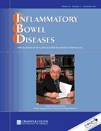Clinical courses of chronic hepatitis B virus infection and inflammatory bowel disease in patients with both diseases
Abstract
Background:
Little is known about the clinical features of hepatitis B virus (HBV) infection in patients with inflammatory bowel disease (IBD). We therefore evaluated the influence of immunosuppressive treatment for IBD on the course of HBV infection and the effect of HBV infection on the therapeutic strategy and clinical course of IBD patients.
Methods:
We retrospectively evaluated the incidence of and risk factors for liver dysfunction in hepatitis B surface antigen (HBsAg)-positive IBD patients. Also, the clinical course of IBD patients with HBV infection was compared with matched IBD controls without HBV infection.
Results:
Of 4153 patients diagnosed with IBD between July 1989 and May 2011, 134 were HBsAg-positive, including 54 with Crohn's disease (CD) and 80 with ulcerative colitis (UC). Liver dysfunction was observed in 23 of the 134 (17.2%) HBsAg-positive patients. Prolonged immunosuppression (>3 months) was an independent predictor of liver dysfunction (odds ratio [OR] 3.06; 95% confidence interval [CI] 1.02–9.16). The rate of use of immunosuppressants, including corticosteroids (P = 0.005), azathioprine/6-mercaptopurine (P < 0.001), and infliximab (P = 0.026), was significantly lower in HBsAg-positive than HBsAg-negative IBD patients. Clinical outcomes, including admission rate, mean number of admissions, total proctocolectomy in UC patients, and mortality were worse in HBsAg-positive than HBsAg-negative IBD patients during the follow-up period.
Conclusions:
Liver dysfunction in HBsAg-positive IBD patients was more frequent in those with prolonged immunosuppression. IBD patients with chronic HBV infection used immunosuppressants less frequently and had a worse prognosis than those without it. (Inflamm Bowel Dis 2012;)




